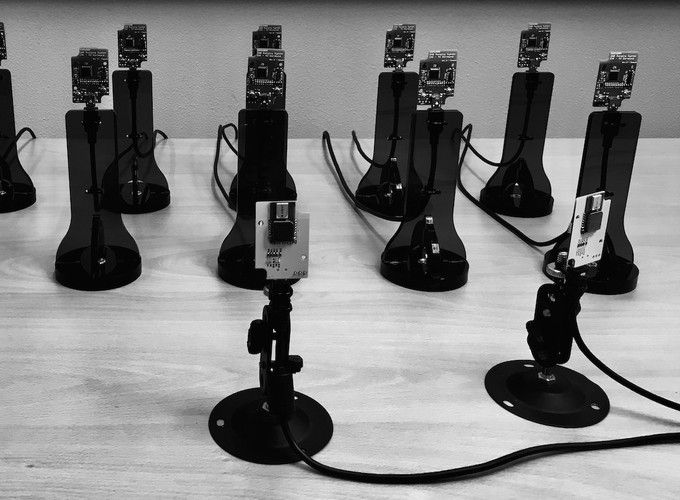Multi-User Interference and Wireless Clock Synchronization in TDOA-based UWB Localization

Multi-User Interference and Wireless Clock Synchronization in TDOA-based UWB Localization
Abstract
Wireless positioning based on IEEE 802.15.4a has recently gained attention for precise localization. However, the multi-user scalability of those, mostly two-way ranging based, approaches is not considered. Due to the exchange of multiple frames per ranging, two-way ranging has significant downsides in terms of scalability. This paper proposes and validates a novel multi-user time-difference of arrival based localization approach using wireless clock synchronization to overcome the limitations of two-way ranging based positioning. The clock characteristics of the individual nodes are experimentally analyzed and the requirements and constraints for wireless clock synchronization are elaborated based on the experiments. The results show, that a clock synchronization rate of around 1 Hz is sufficient to achieve accuracies in the decimeter range. Experiments analyzing the multi-user capabilities of the system are conducted, highlighting the specific properties of multi-user access in the proposed time- difference of arrival based localization. The experiments show, that the system is capable of scaling gracefully under heavy load. However, clock synchronization suffers as it is degrading equally. Therefore, a novel approach is proposed and evaluated to prioritize the wireless clock synchronization to ensure load independent positioning accuracy. It is shown, that the proposed approach is capable of ensuring a synchronization receive ratio of around 90% independent of the system load.